Back to The Riders of the Plains.
The following is an excerpt from The Riders of the Plains: A Reminiscence of the Early and Exciting Days in the North West (1905), by Cecil Edward Denny. This work is in the public domain.
Continued from Chapter XIV – Building the Village of Calgary.
Chapter XV
Arrival of Sitting Bull
THE SUMMER OF 1876 was a busy one with the police. Much improvement was made to the different forts, rendering them more comfortable, such as flooring the rooms with lumber, which had to be cut by hand. Beef cattle were also brought in, and from that time domestic beef took partly the place of buffalo meat, although now and then this meat was used.
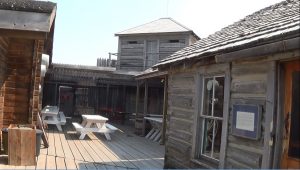
At Fort Macleod quite a little village had started, and a few of the old-time whisky traders had taken up small farms near the forts, and raised both grain and vegetables, for which they found a ready sale at high prices to the police. Cattle had not yet been brought into the country except for beef purposes. The Indians had begun to feel the benefit they derived from having the whisky trade eliminated, and equal justice for both Indians and whites. They were for the most part on the plains hunting, and did not remain long round the forts. Their behavior was wonderfully good, considering the number of them, and crime was very rare, and arrest seldom having to be made, and when so, very little difficulty was experienced considering that they had been altogether left to their own free will to within a little over a year before. The white man’s law was altogether unknown to them, and no doubt, according to their lights, seemed hard, so that their behavior more than favorably compared with the same population of whites. In fact the number of arrests among the few whites in the country was greater than that among the larger Indian population. It, of course, took years to put a stop to some of their customs (which they were brought up to follow as their law) such as cutting off the nose of the unfaithful wife, mutilating themselves on a death occurring in their family, horse stealing, and other customs, many of which still limber among them. As regards the purchase and plurality of wives, the custom continues to-day, in spite of missionary work among them, which cannot be said to be a success.
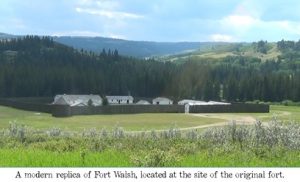 The summer of 1876 was a busy one, much good work being done by the police at Macleod, Fort Walsh (which fort was now finished), and Fort Edmonton. The work at Fort Walsh was hard, and the men were continually out on expeditions, which sometimes took them as far as Wood mountain, over 200 miles east of Fort Walsh. The American Indians were also a source of anxiety, as this post was not more than forty miles from the boundary line, and the Sioux, who were then at war with the American government, would often cross over, and commit depredations on our side. They would now and then come into collision with our Indians, and steal horses, and occasionally some Indian would be killed. This kept the police at that post pretty busy, and too much credit cannot be given to the men for the excellent manner in which they did their work, both in summer and winter.
The summer of 1876 was a busy one, much good work being done by the police at Macleod, Fort Walsh (which fort was now finished), and Fort Edmonton. The work at Fort Walsh was hard, and the men were continually out on expeditions, which sometimes took them as far as Wood mountain, over 200 miles east of Fort Walsh. The American Indians were also a source of anxiety, as this post was not more than forty miles from the boundary line, and the Sioux, who were then at war with the American government, would often cross over, and commit depredations on our side. They would now and then come into collision with our Indians, and steal horses, and occasionally some Indian would be killed. This kept the police at that post pretty busy, and too much credit cannot be given to the men for the excellent manner in which they did their work, both in summer and winter.
In the north the principal work was among the halfbreeds and Indians, there being but few settlers yet in that section the halfbreeds principally lived along the North Saskatchewan, only going south on their hunting excursions, although a few remained round Ft. Macleod and Ft. Walsh, taking any work they could get, such as freighting between the different ports, sawing timber, and other work. A new fort was finished at Ft. Saskatchewan, and Col. Jarvis in command, with only fifty men, had a tremendous tract of country along the Saskatchewan for 400 miles to look after and keep in order. At Calgary we were kept busy, as the Indians, large camps of whom were in the vicinity, had continually to be looked after. A few trips were made north, prisoners having to be brought from there for trial in the south. The officers commanding posts had the power of justices of the peace, and under the North West Territories Act, almost unlimited power in dealing with liquor cases, an act having been passed prohibiting the sale or use of liquor, under heavy penalties.
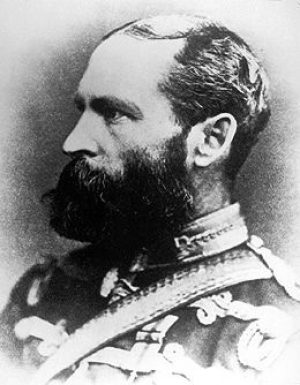
Col French had resigned the commissionership of the police at this time, and Lt. Col. Macleod had been appointed to that position, also with the civil powers of stipendiary magistrate. Lt. Col. Irvine had been appointed assistant commissioner, and the headquarters of the force after the year 1876, at Ft. Macleod, were moved the following year to Ft. Walsh, as that post was nearer Ft. Benton, Montana, from which point all our mail, and other communications with the east started by steamer, via the Missouri River to Bismark and from there by rail. Our recruits, freight, etc, also came that way to Ft. Walsh, being so much nearer. Ft. Benton was made headquarters in 1877 and all other posts were supplied from that place, goods and all supplies being freighted across the plains in ox trains supplied by our Montana contractors, I.G. Baker and Co., and from Calgary to the north generally by ox carts also, as the country from fifty miles north of Calgary was impracticable for heavy trains owing to the swamps in summer and the deep snow in winter. The commissioner had to be continually on the move, as the distances were so great between the different posts that as soon as he made the rounds once it was time to begin over again. A journey in the winter across the plains, in every kind of weather of 300 or 400 miles, was an ordinary occurrence and when it came to winter journeys to Edmonton, it was sometimes fraught with the greatest hardships. In the spring of 1876, Col. Macleod and Col. Irvine started to Edmonton from Calgary with two dog sleighs, two halfbreed drivers accompanying them. Pemmican was all the food they took with them, and tube snow was so deep that they had to walk most of the way, and on their return journey had to travel with the thermometer at thirty below zero, and no tent with them. In those days there was no house for two hundred miles, that is, between Calgary and Edmonton.
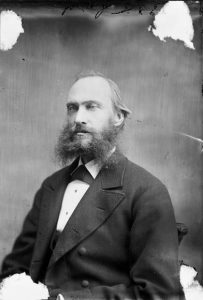
During the year 1876 a Lieutenant Governor was appointed to the North West Territories, with a North West Council of less than twelve appointed members. Battleford, on the North Saskatchewan river, but in the north east corner of the Territories, was the seat of government. The governor Mr. Laird, was also appointed as Indian commissioner, but this appointment, as far as it affected the plain Indians, was a sinecure, as they did not at that time require any assistance from the government, being most independent and having all they wanted in the buffalo, out of which they got all they required. So the work of the Indian department was light among those Indians until the buffalo began to fail.
It was, however, different with the wood Indians in the north, along the Saskatchewan, as to a great extent their supply of buffalo meat was cut off, the buffalo having left the northern country, except in rare instances, where a few small bands would now and then be found in the timber, so that the visits and hunts the wood Indians used to take to the plains were becoming more rare, and help had to be given them and reserves laid out along the Saskatchewan river.
Lt. Governor Morris of Manitoba had made several treaties with the Crees of the north prairies, and the year after the advent of the police, particularly one at Ft. Qu’Appelle, a Hudson’s Bay post in the Northwest Territories. Many of the Indians included in this treaty belonged along the north Saskatchewan river, and reserves were set apart for them and help was given by the government in the way of seed and tools. Instructors also were sent on these reserves to start them farming. Gov. Laird in 1876 also made a treaty with these Cree Indians who had not yet been treated with at Ft. Pitt, Carlton, and Edmonton, so the northern Indians had nearly all been taken into treaty, with the exception of one or two bands who still remained on the plains and were wilder and more warlike than their brothers in the north.
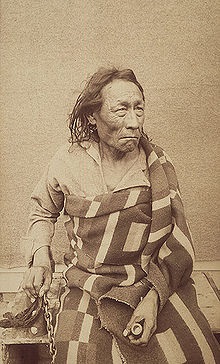
A chief called Big Bear was the head of these Indians, and they were the last of all Indians in the North West to take the treaty, and even when they had done so it was found almost impossible to get them to remain on their reserves, and in future years this band was the one that gave the most trouble in the halfbreed rebellion of 1885. They were a wandering band, sometimes on the Canadian side of the line and sometimes in Montana, giving trouble wherever they might be. All the dissatisfied spirits of the northern tribes were among them. Governor Laird treaded, as I have said, with the Indians along the Saskatchewan, but did not visit the plain Indians until 1877, when the Blackfeet treaty was made. The council consisted altogether of members appointed by the government, among whom, very properly, were the Commissioner and Assistant Commissioner of police. The first session was taken up by organization work, although some acts were passed, but many of them became a dead letter, such as the act to restrict Indians or others from killing buffalo calves which was found impossible to enforce, but other acts came in force to the benefit of the Territories.
The North West council of those days did not of course represent the people of the Territories, who were too few in number in any one district to elect a member for themselves. There was a Dominion act which enacted that it required a population of a thousand in a thousand square miles to make that an electoral division. Legislation, the first few years after the forming of the North West government, was directed more towards Indian matters than any concerning the whites, who had not yet begun to settle in the country, and indeed but few thought that the immense country would ever be at all settled, or support any but the Indian tribes who then inhabited it. A new beginning might be said to have been made for the Territories on the arrival of the Police as their appearance was the beginning of law and order. Previously everyone did almost as he liked.
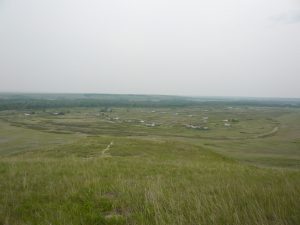
In the spring of 1877 the commissioner received word at Ft. Macleod that the government intended that summer to make a treaty with the Blackfeet and other tribes of plain Indians, and give them reservations and other government allowances as might be deemed necessary, that Governor Laird would proceed to Ft. Macleod from Battleford during the summer, and that the treaty would be held at Blackfoot crossing, and all tribes of Indians coming under that treaty (No.7) had at once to be notified. This was no easy task, as the Indians were all widely scattered after buffalo, and it took us till July to finish the work and have all in readiness for the majority of the two troops stationed at Ft. Macleod and Calgary to proceed with their transport and camp equipage to the Crossing.
At Ft. Calgary Inspector Brisbois, who had been in command since the building of the fort, had been removed, and Inspector Crozier was in command, I being stationed there with him.
The fort was first named Brisbois by that officer, but the name had been cancelled the previous winter by Commissioner Macleod and changed to Calgary, named after a castle in Mull belonging to the Macleod family, and said to mean clear water.
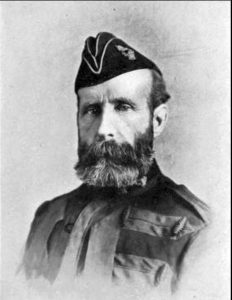
Col. French, the first commissioner, had resigned the command of the force in 1876 and returned to his duties in the Imperial service in England, and the assistant commissioner, Col. Macleod, had been appointed to the head of the force, with Lt. Col. Irvine as assistant commissioner, the headquarters of the force being in the west at Ft. Macleod. Ft. Pelly being almost abandoned, the majority of the 300 men comprising the force at that time were divided between Ft. Walsh, Macleod, Calgary, and Edmonton, and few enough they were to look after and rule over such a vast territory.
No men were ordered from either Edmonton or Ft. Walsh to attend this treaty, the escorts being supplied from Macleod and Calgary.
At Walsh they were having their hands full, as Sitting Bull and his Sioux Indians had been driven across the line the previous winter by General Miles after the Custer fight, and were all congregated in that vicinity. So far they had given no trouble. The buffalo were still plentiful in that section and the Sioux knew that our side of the line was their last haven for the American troops were stationed along the Missouri on the look out for them, preventing them returning. It was a most difficult matter to keep things quiet with these thousands of hostile Indians in the country, as the Blackfeet, their hereditary enemies, were not too well pleased to have them in the country, killing their game.
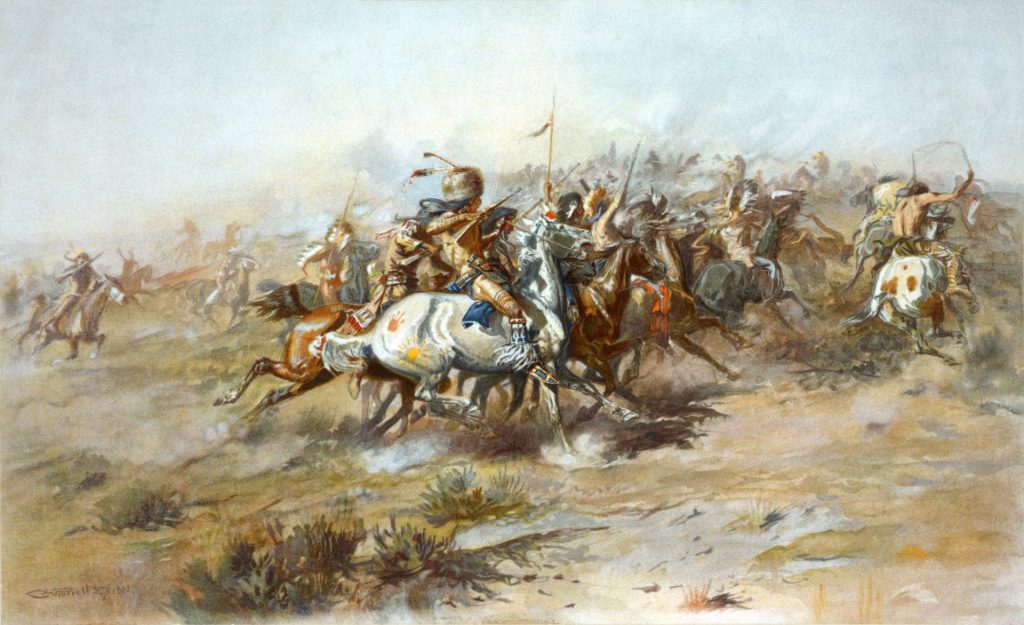
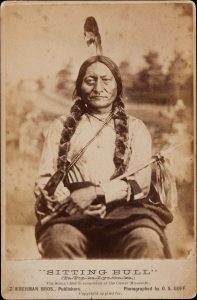
Peace was kept, however, and it is astonishing too, with that mere handful of men, there not being more than 50 at Ft. Walsh, in the very centre of the Sioux, and the nearest police post to that place being Ft. Macleod, 200 miles away, with only 100 men even there. The six troops were at this time divided as follows: – two stationed at Ft. Macleod, one at Walsh, one at Calgary, and one at Edmonton, the sixth being then at Battleford, the seat of the North West government, and part of this troop was to escort Gov. Laird across the plains some 300 miles to Ft. Macleod. F. troop was ordered to leave Calgary about the end of August, and to proceed to the Crossing and pick out the camp ground in readiness for the arrival of the Governor and the majority of the two troops stationed at Macleod. A small detachment was left at Calgary, and Capt. Crozier, with the troop, proceeded to the Crossing some twenty miles east, at the end of August. I remained behind for a couple of days to see that all was left in order at the fort, and then went down the Bow river with Mr. Davis, of I.G. Baker & Co, who were ordered down to assist in the store that Baker & Co. were to open at the Crossing.
We left together, going down the river in a boat, and calculated to make the trip in two days. This was the first party that ever went down the Bow in that manner, and we greatly looked forward to the trip, especially as the weather was warm and pleasant, the nights at that time of the year being short.
We made a very pleasant trip the first day, with the exception of being nearly swamped several times while running some of the rapids, which we found very numerous, and the river being very swift, we would often come upon them round some bend before we had time to avoid them.
We passed many small bands of deer grazing on the river bottoms, but did not stop to hunt them, and saw one bear, which quickly disappeared in the underbrush. We camped the first night on a wooded island, and built a roaring fire which lasted the night, for we had no tent with us, as the weather was dry and warm.
The second day our work was heavier, as a stiff wind blew all day up the river, giving us plenty of rowing, and it was not until late on the second night that we arrived at the Crossing, coming very nearly running past the camp in the darkness, which we should have done had it not been for the barking of dogs in one of the Indian camps near the river.
However, we reached our camp about midnight, and found that the party from Macleod had not yet arrived, although many thousand Indians had come in and were scattered in camps for many miles along the river.
Continued in Treaty of 1877 Described.







Leave a Reply